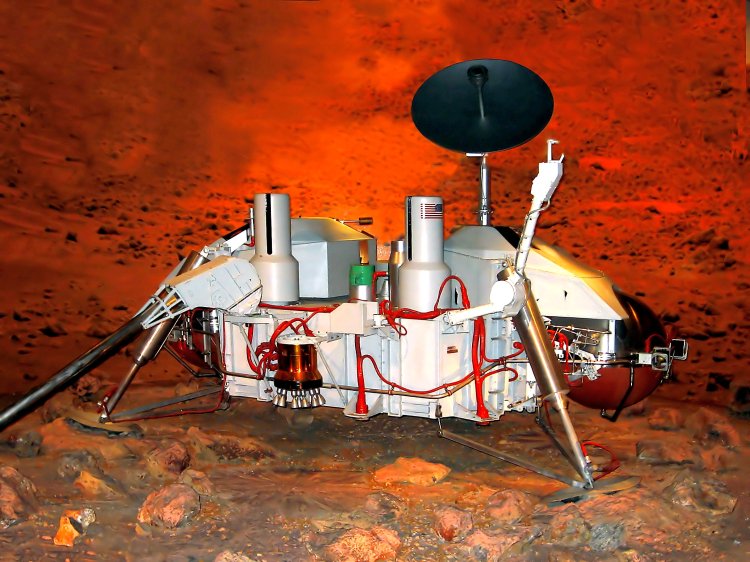NASA's InSight recorded something unusual

A recorded earthquake measuring 5 on the Richter scale is recorded by NASA's InSight mission, surpassing all previous records.
Last week, NASA's InSight spacecraft discovered something unusual: the biggest earthquake ever recorded on Mars. The measuring platform had been idle for 1,222 days on Mars.
With the help of a seismometer, the robot transmitted data to Earth. NASA scientists are relieved to learn that this is exactly what they were hoping for: a huge earthquake of magnitude 5, which falls into the medium-strong category when compared to earthquakes on Earth.
Insight had previously detected a record magnitude of 4.2 earthquakes in August 2021, an earthquake that scientists had sought to investigate since InSight arrived on Mars in October 2018.
"We seem to have fewer strong earthquakes on Mars compared to many smaller earthquakes, which is a little strange," said Bruce Banerdt, a member of the InSight team.
Strong earthquakes like this are part of the puzzle that has been missing on Mars. Scientists can use recorded seismic waves in conjunction with X-rays or magnetic resonance imaging to learn more about the composition of Mars' core.
With more comprehensive images of Mars' innards, we will be able to answer questions about how the planet formed and evolved over time. Such knowledge could be critical in the quest for new worlds capable of supporting life.
"We might see what the Earth used to be like by looking at Mars' core and crust and realizing that they haven't altered much in the last 4.5 billion years," Banerdt said in an April statement. He went on to say, "Mars helps us comprehend how rocky planets arise and grow."
Over 700 earthquakes have been recorded by InSight so far, revealing significant facts about Mars' innards. As a result of several asteroid hits, scientists have determined that the planet's shell is thinner than previously assumed, resembling the Moon rather than the Earth.
Earthquakes on Mars endure longer than earthquakes on Earth because Mars' shell is so dry and shattered. Without moisture to absorb them, they literally reverberate among the crevices in the shell, which implies that earthquakes on Mars endure between 10 and 40 minutes.
Scientists have discovered that Mars still has a molten core because of tremors. They are unsure, however, whether the inner core is melted or solid, as it is with the Earth.
The large earthquake occurs in the middle of problems with electrical generation, namely solar panels that are becoming increasingly dusty as the Martian winter approaches.
Last Sunday, May 7, 2022, the robot's overall energy reserve fell below the level activated by the "safe mode," which disables all but the most basic activities. This reaction is meant to keep the spaceship safe, and it can be repeated if the energy level dips any lower.
NASA extended the mission of InSight to December 2022 after it successfully completed its initial mission in 2020.





























